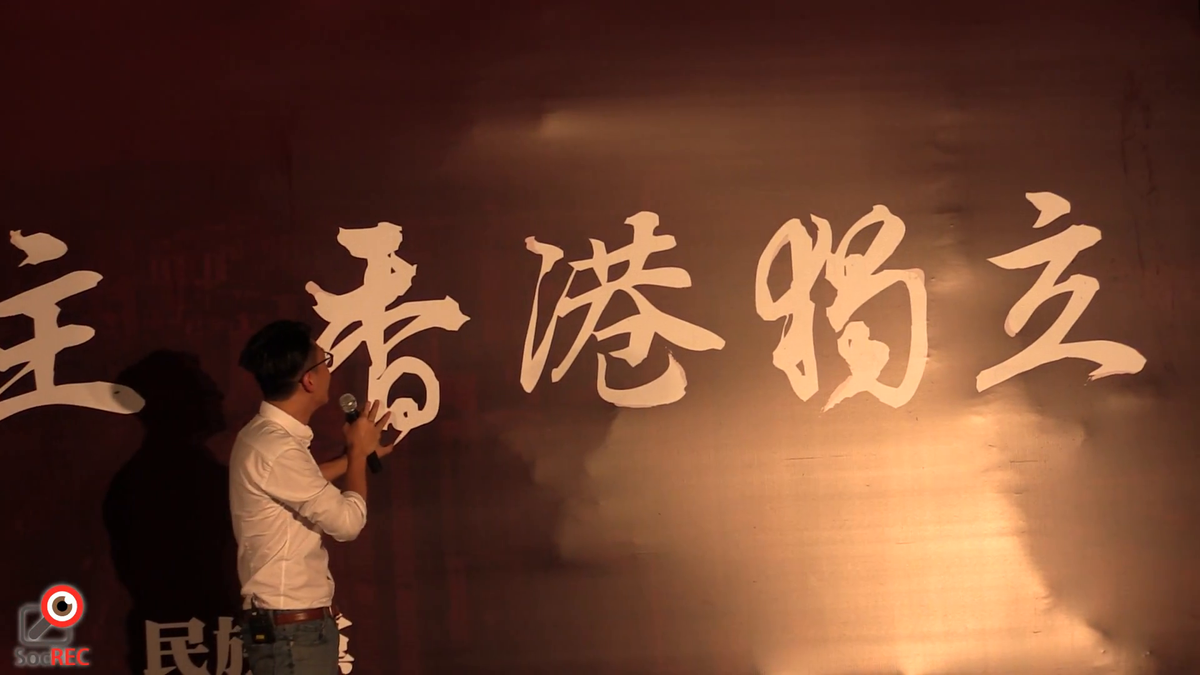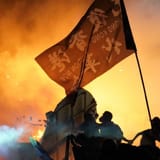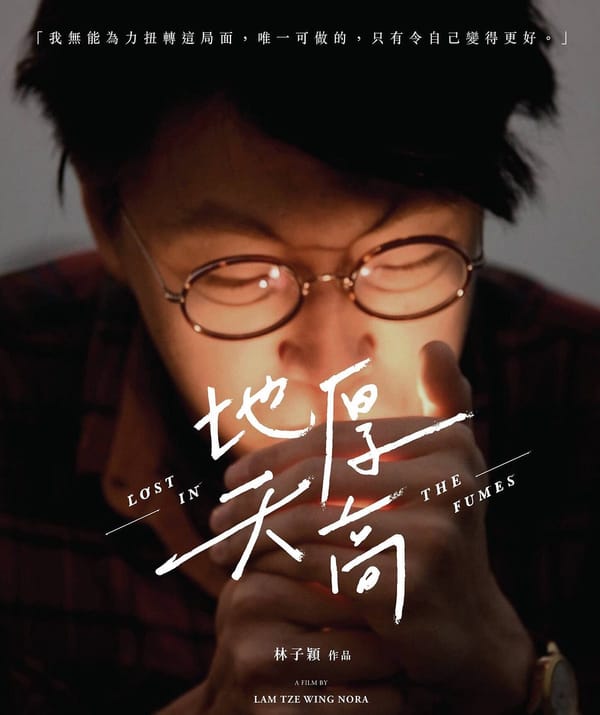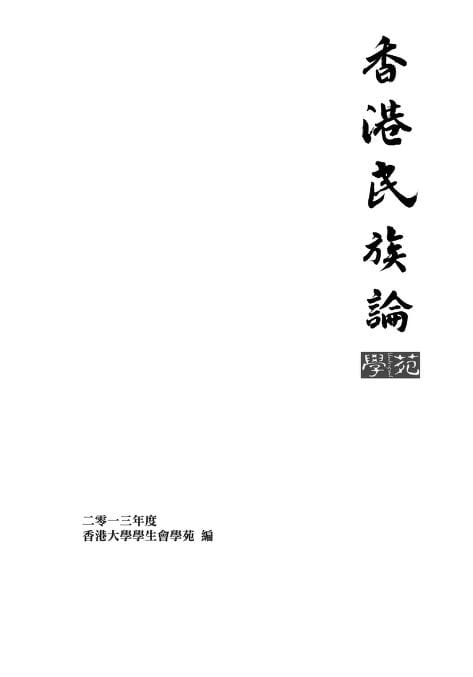Leung Tin-kei's Speech at Hong Kong National Party Rally (August 5, 2016)
Leung Tin-kei's speech at the Hong Kong National Party rally on August 5, 2016

This article is taken from Leung Tin-kei's speech at the Hong Kong National Party rally on August 5, 2016.
Hello to all Hong Kong people, I am the spokesperson for the Hong Kong Indigenous (本土民主前線), my name is Leung Tin-kei. I'm very pleased that so many people have come to attend this peaceful and rational gathering today. Many people might wonder why Hong Kong National Party, or the localist camp, would organize such a gathering.
Dogmatism
In the past, we often emphasized that we need courageous resistance, denouncing formalism and defeatism. Does this mean we definitely cannot chant slogans, organize marches, hold gatherings, or listen to songs? Actually, that has never been the case.
When we were at the frontlines in Admiralty (金鐘) and Mong Kok during the Umbrella Revolution, why did we denounce the old models? Why did we denounce the old politicians? It was because of their dogmatism. Peace, rationality, non-violence—some people even thought we should avoid using foul language. They believed these principles were sacred and could never be violated. As a result, when brave souls charged onto Lung Wo Road in Admiralty, they were abandoned by these dogmatists. What we oppose is precisely this—we oppose dogmatism, not the inherent power of peaceful assembly or civil disobedience itself.
I've said this once during the New Territories East by-election: if our society wants to reclaim the power we deserve, we cannot continue with dogmatism. All roads lead to Rome. Whichever method can overthrow this government is the method we should adopt. Those who believe in peaceful resistance and civil disobedience should continue with civil disobedience. Those who believe in occupying roads, hunger strikes, tax resistance, and other peaceful means should continue doing so. I encourage you to do it, I hope you will do it! I don't want you to abandon what you believe in just because some people criticize your methods. At the same time, those who believe in militant resistance should also continue.
In recent months, we initiated a protest outside the Liaison Office on July 1, and we failed. We implicated several brave souls who came out to support us but were arrested and couldn't accomplish anything. Plan A failed, Plan B failed, Plan C also failed. What does this prove? When we resist the government and reclaim our rightful power, we must adapt to circumstances. That night, there were nearly a thousand police officers guarding Western District. If we blindly believed that militant resistance would definitely succeed, that militant resistance was the only path we must take, we would all have gone to our deaths that night. I don't want to see anyone sacrifice themselves, nor do I want to see anyone pushed to the frontlines. Only in necessary situations, only when faced with a dilemma—either retreat or stand and resist—should we go all in with militant resistance.
I hope everyone understands this point. Let's not continue with dogmatism. Don't blindly believe that your chosen path will definitely succeed, that it's the only path that must be taken, and that all other paths shouldn't be taken and are wrong. We absolutely must adapt to circumstances. So I think today's gathering organized by the National Party is actually a very good thing, because I believe these four characters (Hong Kong Independence)—I can't say it now because of my court case and election petition—so I can't say it, it's difficult, really difficult. These four characters (Hong Kong Independence), these four characters are appearing for the first time here at Tamar Park, and so many Hong Kong people have come out for these four characters. This is a historic moment, so I won't ask you to give yourselves applause—absolutely not—but remember this moment. This is the moment when we manifest our will for independence.
Good, now onto the main topic. Actually, my thoughts have been very confused during this period because too many things have happened in these two weeks. I haven't even started preparing for any election; I'm still studying. As a result, these political whirlwinds and storms have come at me, requiring constant attention, so at this moment, my mind is extremely confused. What exactly should I say to most effectively inspire everyone's will for independence? What should I say to awaken more people to come out and resist? I still haven't figured it out.
Politics
But there are several themes I want to discuss, which I've written on my notes. The first is politics. What is politics? Some say it's the affairs of the people, but I see the essence of politics as the distribution of power. When we talk about a political problem arising, we're actually talking about how power and resources in society are either kept concentrated in the central government, or kept in the hands of the privileged elite, or whether this power will be transferred to another stakeholder, such as the people, such as Hong Kong people.
What has happened in these two weeks? The government has extended its power, power that it doesn't legally possess, extending it infinitely. They don't follow the law that's written in black and white. The government extends its power, depriving people of their rightful electoral rights, both to vote and be elected, as well as freedom of speech. So this is a problem of power distribution. When we Hong Kong people come out to resist, to pursue reform of the political system, or as we are today, to pursue these four big characters. What we're talking about is seizing power. We want to reclaim the rights we should have in society. The sovereignty of this society, of Hong Kong, doesn't belong to Xi Jinping, doesn't belong to the central government, doesn't belong to the Communist Party, doesn't belong to the Chinese government, nor does it belong to the SAR government. The sovereignty of this society belongs to Hong Kong people. Sovereignty should always rest with the people, not with Beijing, but what is Hong Kong's situation?
Hong Kong has over a million Hong Kong people, flesh and blood Hong Kong people, over a million, who don't have the power to elect representatives who represent them, they don't have the right to be elected, they don't have freedom of speech. Their rights are completely exploited by the government. What kind of society is this? This is a dictatorial society. How should people with independent will, people pursuing their will, face a dictatorial government? Revolution. But here comes the problem: revolution will lead to bloodshed! Revolution might fail! Revolution requires sacrifice! Of course these will happen. If the government doesn't cause your revolution to fail, doesn't suppress your revolution, doesn't cause you to sacrifice, doesn't exploit your rights, doesn't kill you in the bud, what does that mean? It means your revolution is ineffective; it means you pose no threat to the government! So the current situation may seem dire, but at the same time, it proves one thing: we pose a threat to the Hong Kong government, as well as to the Beijing government, to China. So you should be encouraged by this fact.
We have abandoned our illusions about the Hong Kong government, the SAR government, and the Basic Law's "One Country, Two Systems." Today, at this moment, we are preparing to struggle, we are preparing to seize power. This is the significance of today's gathering.
Militant Resistance, Government
Next: government. What is a government? Why does government exist? Government exists because people want an institution for power distribution to maintain social order. Government is not an institution that rules the people; government should be the servant of the people. People shouldn't fear the government; the government should fear the people. Those of you who watch movies should know these two sentences apply to Hong Kong as well. Although at this moment, many Hong Kong people still fear this government. Why? The government has weapons, the government has force, the government has power, the government controls all the discourse in society. The government has the law, and it can interpret the law as it wishes. Whatever Rimsky Yuen [Secretary for Justice] says the law is, that's the law. This is Hong Kong. The essence of government is a violent institution. When what we do doesn't align with what the government thinks, doesn't align with the direction of those in power, they use violence to suppress us!
So why do we emphasize militant resistance? It's because the government itself is already a violent institution. Facing a violent institution, we cannot be merciful, we cannot be weak, and we can no longer talk about humanity and morality with them. This government is fundamentally a ruthless government; China is a ruthless government. What's the point of talking about humanity and morality with them? They will be ruthless if they want to be. Of course, many people don't want to be ruthless—including myself. But if this is a necessary method to overthrow the government, I am willing to be that ruthless one.
Revolution
Moving on to the third topic: revolution. What is revolution? Everyone will immediately think of bloody revolution, the Hsinhai Revolution, death, buildings collapsing, sacrifice, suppression, prison. Everyone will certainly think of all these things, but what actually is revolution itself? Revolution itself refers to a fundamental change in social structure and power distribution, a change from the bottom up. A change from the top down actually represents reform, while a change from the bottom up is revolution.
So think about it—today, do you still expect reform from the top down from China's Hong Kong SAR government? Do you still believe they will give us democracy, give us freedom? Impossible. Therefore, we must have revolution. And when does revolution begin? Revolution has actually already begun. Two years ago, why did we localists call the Umbrella Movement the Umbrella Revolution? Because we knew that moment was a beginning. At that moment, more Hong Kong people realized we can no longer rely on others, we can no longer rely on this government to be lenient, because if we rely on their leniency to give us democracy, this is merely rule by man.
Why should we depend on those in power to be lenient? Why should we expect the Beijing government to have a bit of kindness, to realize that Hong Kong people aren't actually trying to subvert the state but just want power, just want democracy, and thus initiate democratic reform? We don't believe in this. September 26, September 28, November 30—that's why we came out to pressure the government from the bottom up. We don't want Hong Kong to be a society ruled by man; we want Hong Kong to be a society ruled by law. If the constitution clearly states the rights we should have, then we should have them. So two years ago, this revolution had already begun. It's just that everyone didn't know it, everyone still thought it wasn't revolution—it was peaceful, rational, non-violent, a very beautiful utopia, like that road in Admiralty, Harcourt Road. But in fact, the revolution had already quietly begun.
Because we no longer expect those in power to reform from the top down, we are transforming the power structure of this society from the bottom up. The revolution has already begun. So when will it succeed? In 1894, what was Sun Yat-sen doing? He was still submitting a petition to Li Hongzhang, still talking about how the Qing government should reform. As you probably know, in 1895, after being ignored, he founded the Revive China Society and officially began the revolution. When did it succeed? From when he first started on the path of revolution in 1911, it took sixteen years to overthrow the Qing government. I don't want to dampen your spirits or pour cold water on you, but revolution is a long road. It cannot succeed in an instant, but it might also suddenly succeed in an instant. It's a very paradoxical, very funny thing—revolution.
But we must maintain this revolutionary spirit. We must influence more people, because when the moment of success comes, when we look back, we will know it was all worth it. If after the revolution succeeds, we cannot win the hearts of the people, we cannot win public support, we have no way to gain this world. He who wins the hearts of the people wins the world. So the first thing we need to do is influence more people. Today, seventeen percent, over a million Hong Kong people believe in these four big characters. We need to continue increasing this number. I don't know when we will become the majority in society, but I know that one day we will be the mainstream. This is something that will inevitably happen.
Because even if today I can't run for election, even if today I can't continue in politics, I believe that as long as this "door is always open" is here, I will never have a chance to enter the building next door. But it doesn't matter, because there will always be someone else to replace me; there will definitely be successors. You absolutely should not place all your hopes on one person. Of course, a person represents themselves, but at the same time, they only represent an ideal. What you should follow is an ideal, not a person. Even if I can't run for election or do—I don't know what else I can do at this point, but I know I can still continue to influence more people, I can still continue to spread my ideals. We must continue to influence the hearts of the people. We will eventually become mainstream; we will eventually succeed.
Dreams
Finally, dreams. What are dreams? Dreams are... well, dreams are just dreams. Dreams are actually very illusory things. Before dreams are realized, they always seem like crazy talk. When I was eighteen—well, seventeen years old, it was 2008. There are many reporters here, so I won't mention any political party or legislator names. But in 2008, you all know which new political group entered the Legislative Council. You should all know which leading figure was a representative of a political party. Everything they did in the council influenced me. When I was in Form 6, I told a classmate, "In the future, I want to become a representative. What do you think?" He said, "That's great, you're suited for it, you'll definitely succeed! I'll vote for you in the future!" But this thing seems to have failed today. Yet once, I was only one step away from this dream. And what has happened in this half-year, this year, as I pursued this dream?
Actually, a year ago, I was just a useless youth. A year ago, I was just a university student who couldn't graduate. Wanted to graduate but couldn't. A year ago, I was just a useless youth whom nobody in society knew who I was, and I didn't know what role I should play in society. Who would have thought that a year later, this useless youth would become a Hong Kong person deprived of political rights by the government? Who would have thought that a year later, this useless youth was once only one step away from this dream? No one would have thought so; I myself didn't really believe it. But even though I was half-believing, half-doubting whether my dream could be realized, I knew that if I continued to half-believe, half-doubt and didn't take action, I would definitely fail.
If I hold onto this dream even knowing it's very difficult to succeed, even knowing there's a good chance of failure, even knowing that by coming out I'll be ridiculed, spat on, abused, and suppressed, but I still continue to act—what's the difference between a person without dreams and salted fish? So I continued to act. So a year later, you see me, Leung Tin-kei, standing here today, but a year ago I was just a useless youth, couldn't find a job, couldn't do anything, didn't know anything. So today, everyone with this ideal, with this dream, must continue to hold onto this dream.
One day we will succeed, because right now many people ridicule us, think we're crazy, but a year ago, who would have thought that these four big characters would influence so many Hong Kong people, who would come to this place to gather? A year ago, if you mentioned these four big characters, people would think, would say, you're crazy, maybe it works in video games, don't dream—but a year later, this gathering has appeared. So what will appear another year from now? I don't know, but if we, this group of people, as well as many future people in society continue to maintain a dream, we will definitely realize this dream, definitely succeed. At this moment, it is very dark, as Chan Ho-tin said. But I believe many of you have watched Batman, and in Batman there's a line that says the darkness before dawn is the fucking darkest—it's really dark, but dawn is about to come. Thank you all. Liberate Hong Kong! Revolution of our times!



![[台灣版] 梁天琦-香港民族黨造勢大會 2016](/content/images/size/w600/2025/04/0033-1-2.png)
